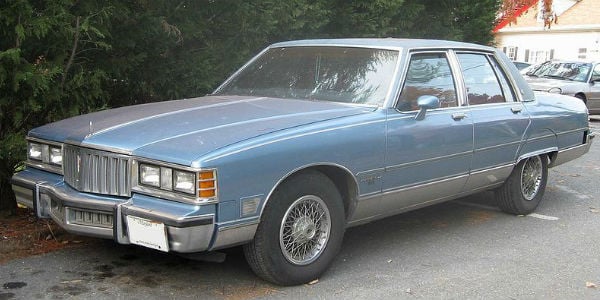If your credit union was a car

In the course of conducting brand and strategic planning sessions for credit unions, many questions are asked. Often, these are the types of questions you might expect, such as “what words would you use to describe the credit union,” “how likely are you to refer a friend or family member to the credit union,” and “how long have you been a member.”
However, to mix things up a bit and enliven the data pool for clients, we have recently taken to spicing up the question mix with a few curveballs. A recent addition (and a very enlightening one) goes something like this:
“If the credit union was a car, what kind of car would it be and why? (Feel free to get as specific as possible, including year, make, model, color, etc.)”
Answers prove, as mentioned above, both enlightening and entertaining. A few recent responses include:
- A 1990 white Ford Taurus (not flashy, but reliable and always there for you)
- A 1985 Dodge K-Car (ugly, slow then breaks down a lot)
- A newer model Cadillac Escalade (sexy, showy)
- A 2001 Ford F-150 (rugged, dependable, gets me where I’m going)
- My grandmother’s Buick (an old person’s car)
- A school bus (clunky, takes forever to turn, just hauling people across town)
Some answers are downright funny. Others can sting (see “my grandmother’s Buick”). All, however, work by taking the mind of a member off the routine satisfaction surveys and allowing the members’ imagination to roam and play.
Answers to a question like this are useful in that they disarm a member enough to generate what more sincere and authentic answers than typical survey questions. It also forces respondents to break outside the mold of simple yes or no answers.
What can credit unions learn from answers such as these?
- If members perceive your credit union as ugly, old and slow — it’s probably time to make some pretty serious changes. Are they talking about your loan decision response times? Your home banking platform? Your lack of digital adaptation and innovations? Whatever the case may be, take this answer as an opportunity to improve upon your offerings.
- If members respond favorably, it can be reassuring. Keep in mind, however — the best work you do today is not good enough for tomorrow. A satisfied consumer now does not necessarily equal a satisfied consumer in the near-term future. Pat yourself on the back for a positive answer — then start the prep work now to get even better tomorrow.
- More pointed answers (such as “school bus”) are immediate red flags. Members describing your credit union in such a way probably feel an epic disconnect between the products, services and experiences they expect to feel and that which your credit union delivers. As the gap between expectations and delivery widens, your credit union runs the risk of losing members and dropping wallet share to the competition.
Of course, it’s possible that a certain survey will catch a member on a particularly bad day. For example, if they were turned down for a loan (through no fault of the credit union) and answered unfavorably, this response could taint the pool. That’s why it’s important to gather as large a sample of answers as possible.
Member satisfaction surveys are, increasingly, an antiquated tool of the distant past. In our age of hyper-competition, simply trying to keep a member happy is nowhere good enough. Credit unions must strive for members that are wowed every day by the experiences.
Those studying credit unions, their members and the dynamics of the relationship between the two must learn to adapt their research techniques to generate more insightful and change-inducing answers. By asking members to draw an analogy between their credit union and a fictitious car, the research can return a much deeper and richer picture of who and what your credit union is to the members who rely on it every day.





